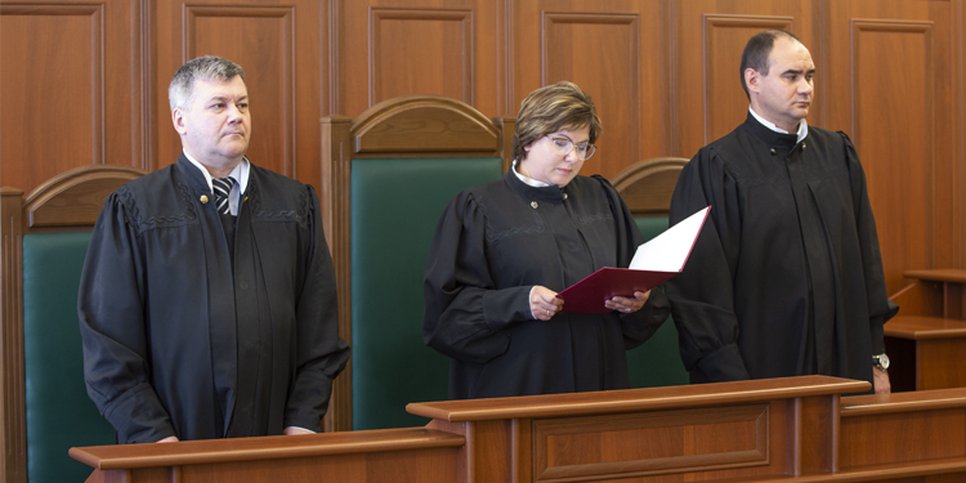Photo: Oryol Regional Court announces the appeal ruling in the Christensen case
Photo: Oryol Regional Court announces the appeal ruling in the Christensen case
On May 23, 2019, a panel of three judges of the Oryol Regional Court upheld the verdict of the lower Zheleznodorozhny District Court, according to which Dennis Christensen was sentenced to 6 years in a general regime colony for his faith. He was found guilty under Article 282.2(1) of the Criminal Code. Now the believer is preparing to be transferred to a colony from pre-trial detention center No. 1 in the Oryol region, where he has already spent almost two years. In the meantime, the European Court of Human Rights is preparing to consider his complaint with the participation of the Danish Government as the person concerned.
"Today it has become clear that the statements of the Russian authorities before international institutions that the liquidation of legal entities of Jehovah's Witnesses "does not contain a restriction or prohibition to practice the above teachings individually" are nothing more than cunning," said Yaroslav Sivulsky, a representative of the European Association of Jehovah's Witnesses. "As we have seen, in order to convict a person of extremism and an attempt on the constitutional order, and then punish him on a par with thieves and murderers, law enforcement officers only need to prove that he believes in God in the wrong way, and catch him reading the Bible. Such court decisions have been known since biblical times. In Russia, we experienced all this in the Soviet years. But, as history shows, none of the goals for which such a harsh mechanism of repression has been launched will be achieved.
Dennis Christensen has been under arrest since May 25, 2017, becoming the first Jehovah's Witness in modern Russia to be imprisoned for his faith. The history of this criminal case and its consequences are described in the 11-minute video report "The Christensen Case. A faith that is above prison walls." You can also find a detailed chronicle of the process.
After the arrest of the Dane, mass searches and arrests of other people whom law enforcement agencies considered extremists only for their religion began in all regions of the country. Dozens of Russian citizens and another foreigner are in jail or under house arrest in criminal cases similar to the one in Orel. Acting according to a single template, law enforcement agencies initiate cases against civilians who gathered to pray and read the Bible in private homes.
Authoritative international and Russian human rights organizations have already spoken out in support of Dennis Christensen, whose case is considered by many as a precedent. Denmark intervened as a third party in the case of Christensen v. Russia, pending before the ECHR. The believer was recognized as a prisoner of conscience by the Russian organization Memorial and the US Commission on International Religious Freedom. The European Union called for Christensen's "immediate and unconditional release". The UN spoke in the same vein, calling on the Russian authorities to release all persons arrested for their peaceful religious beliefs.

